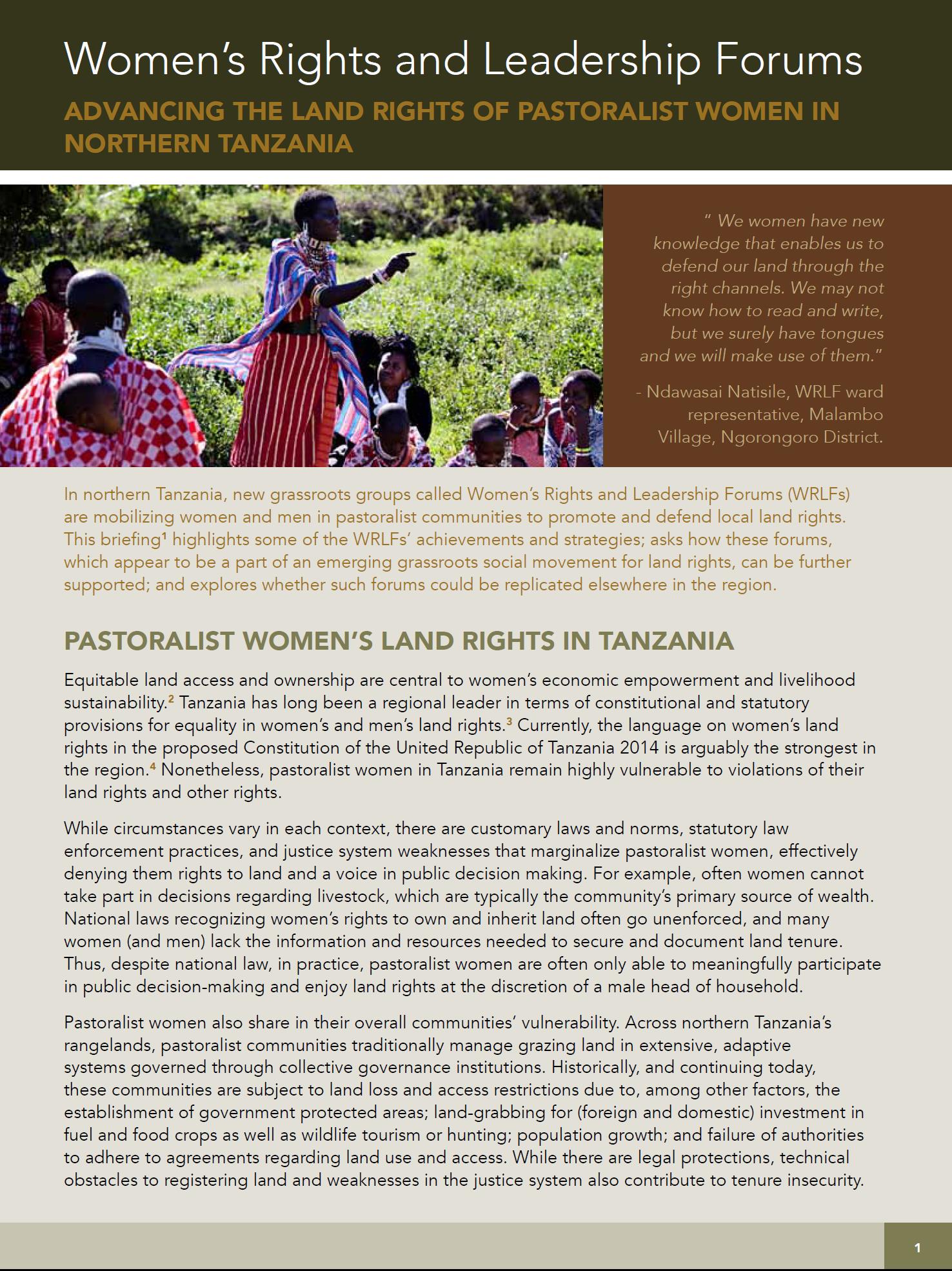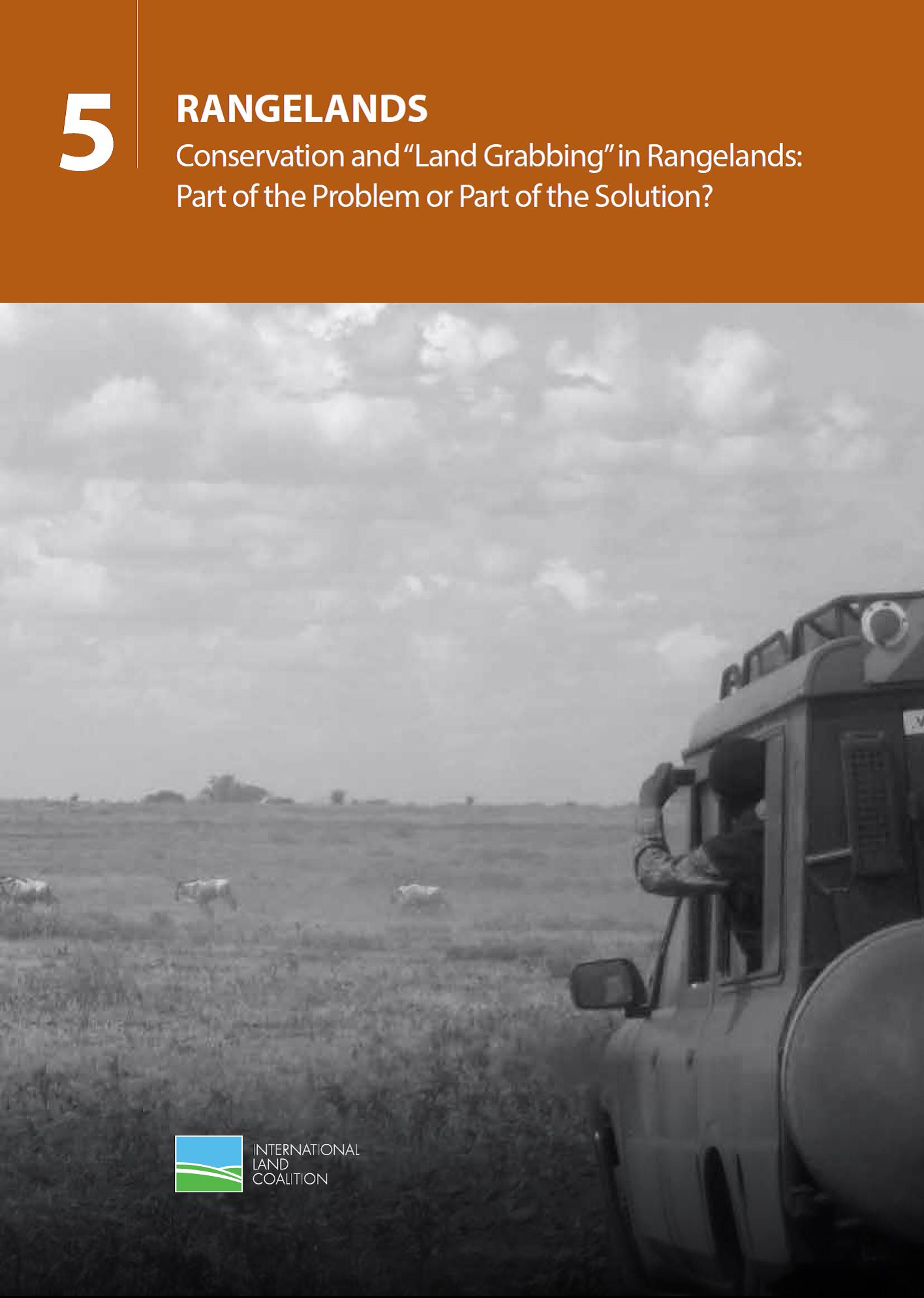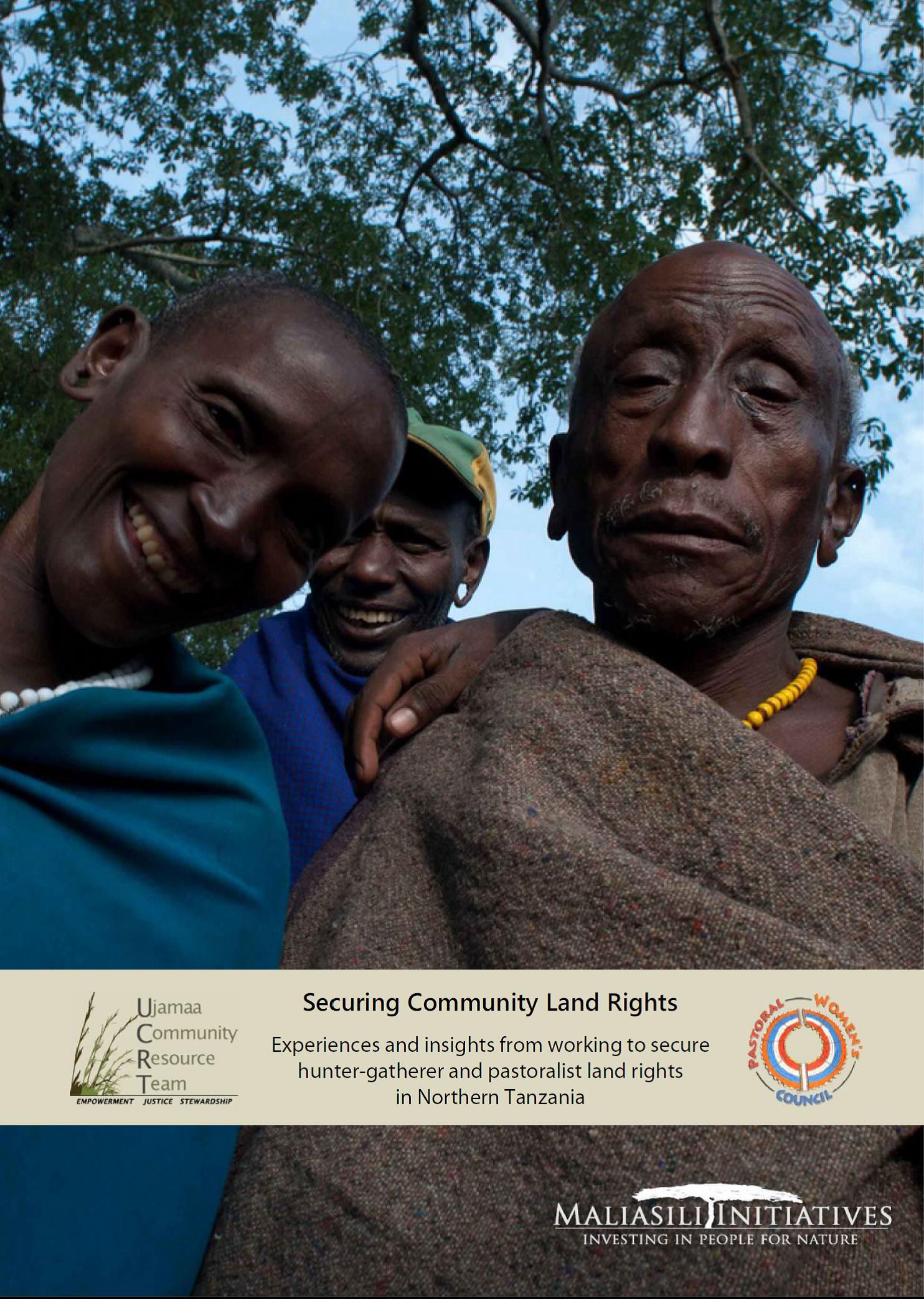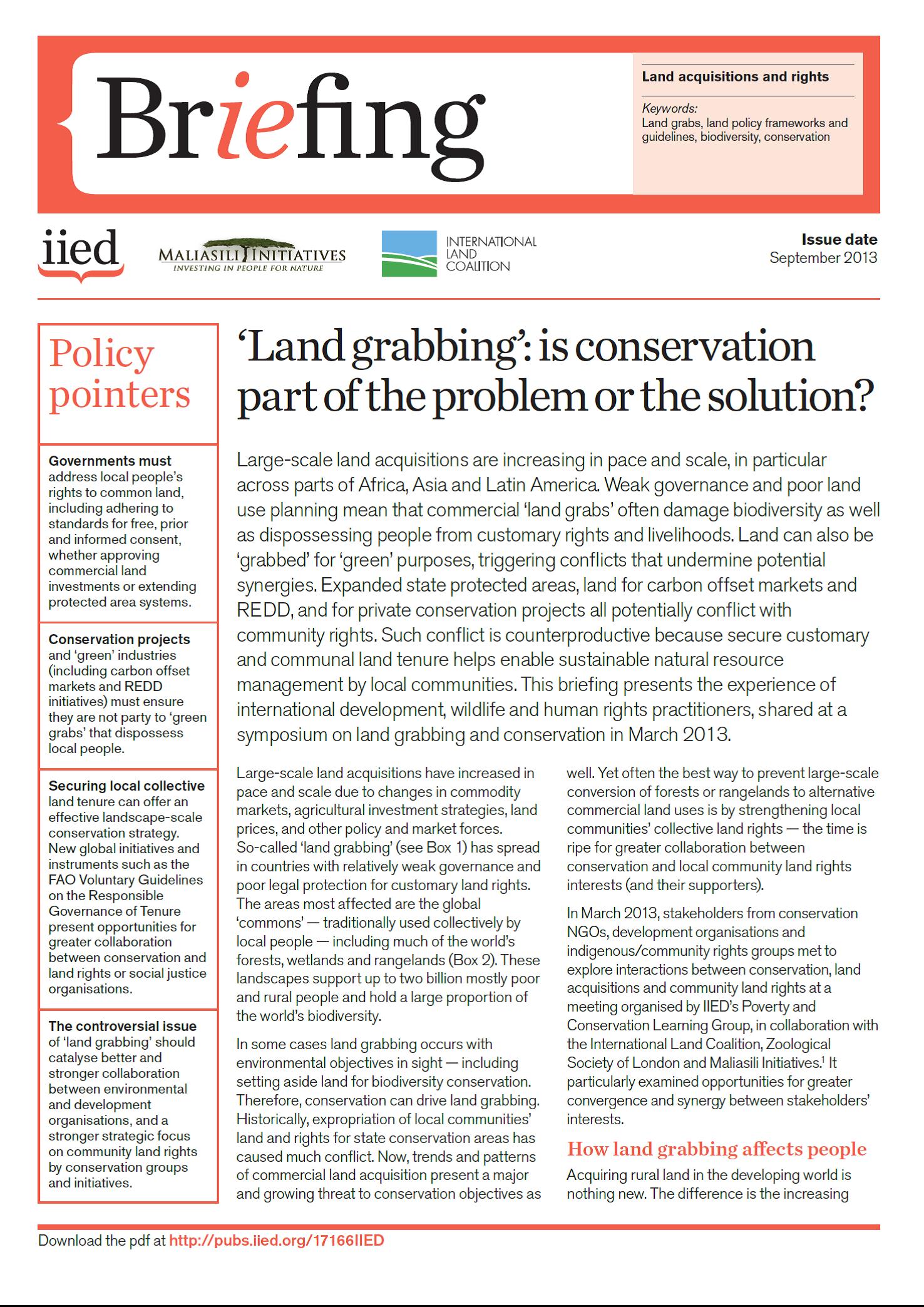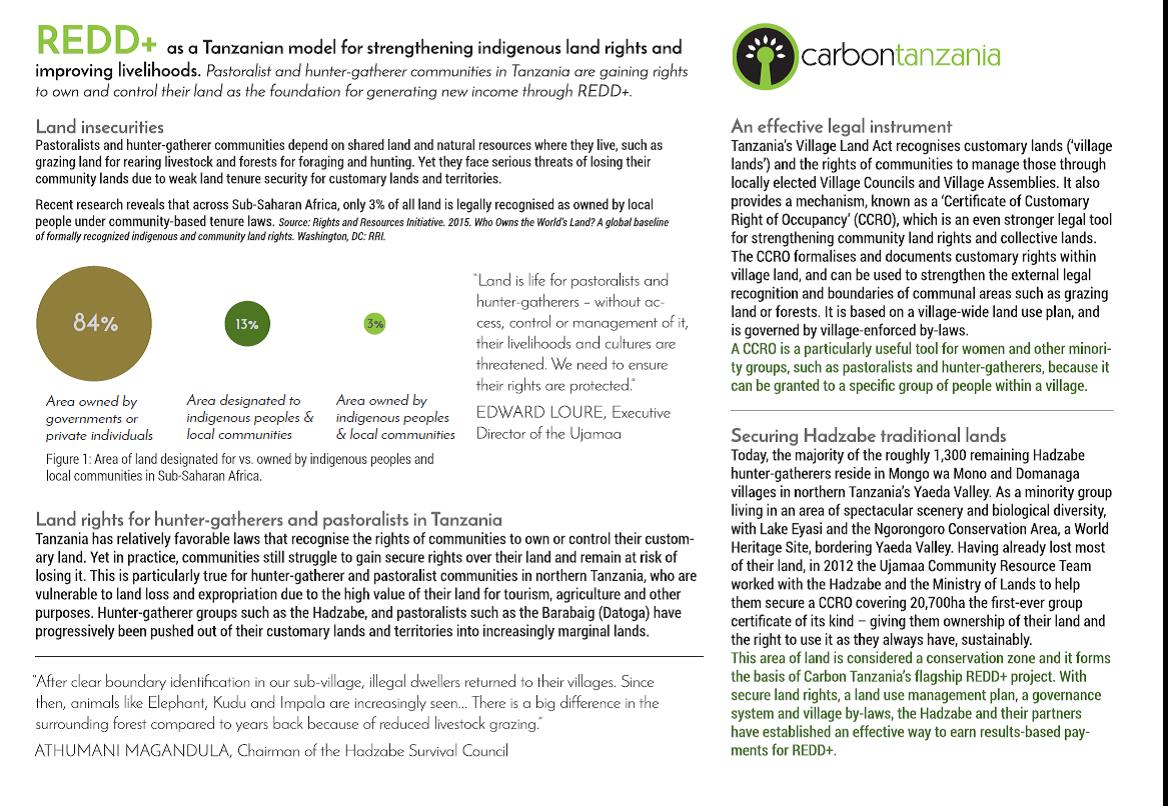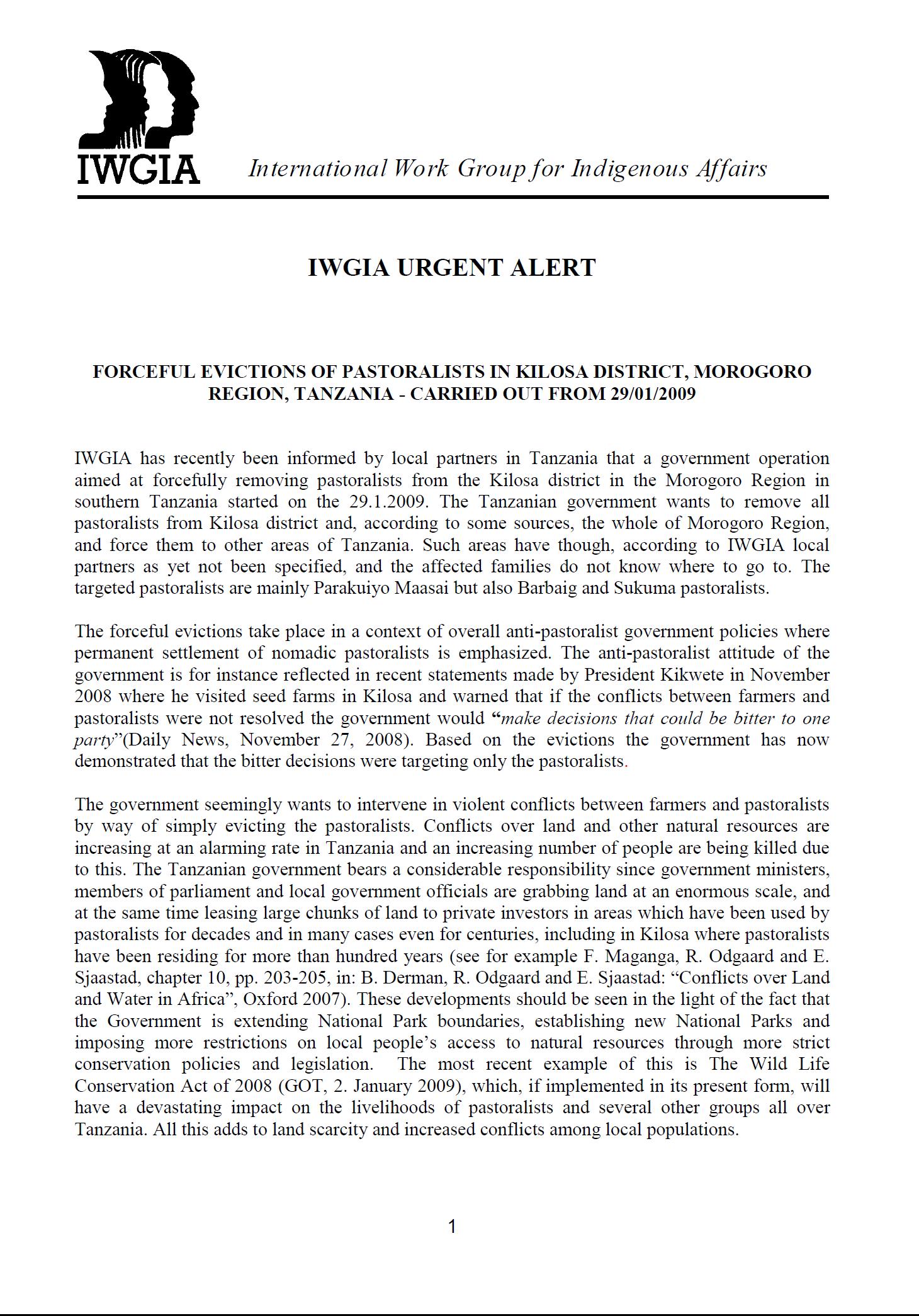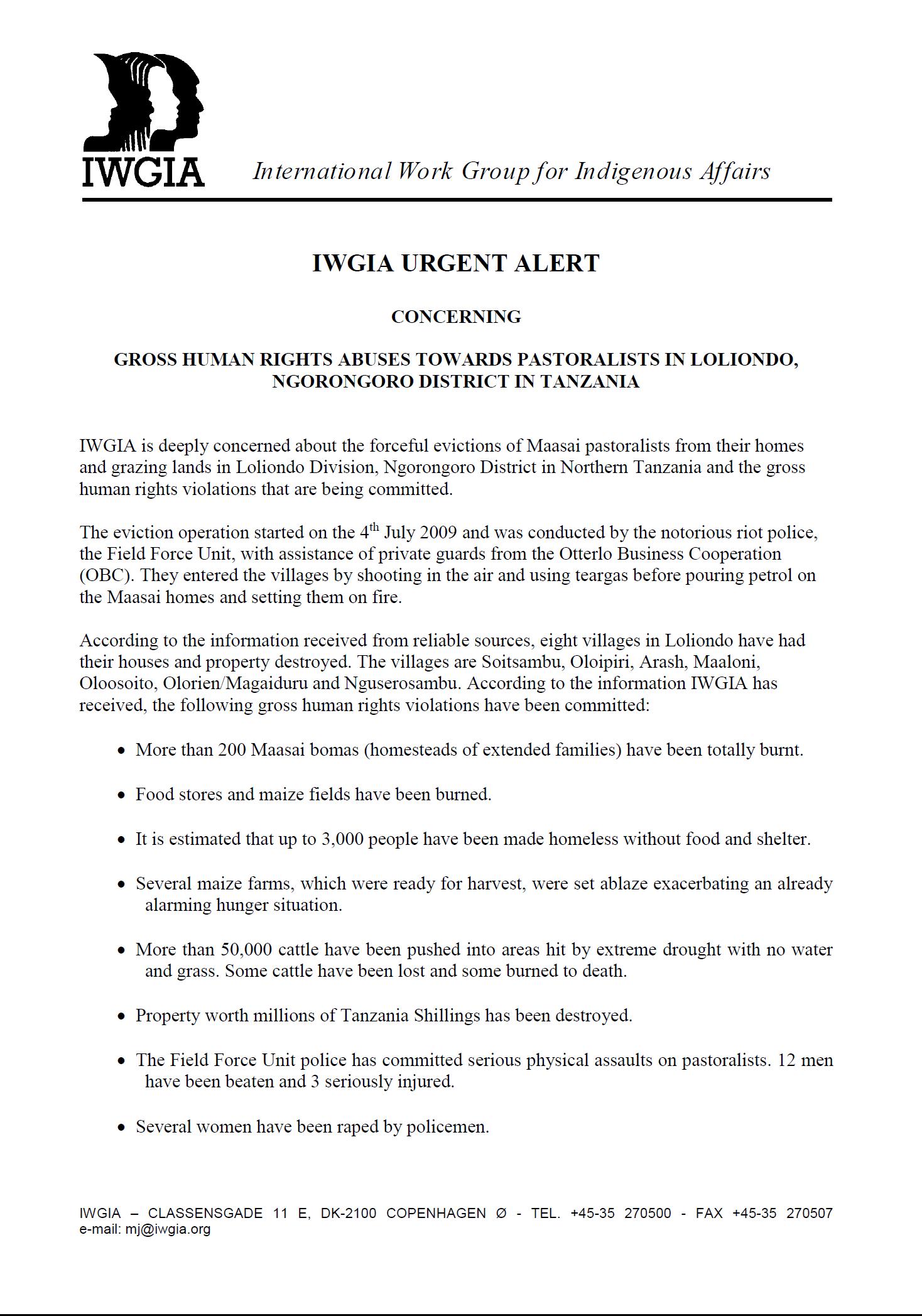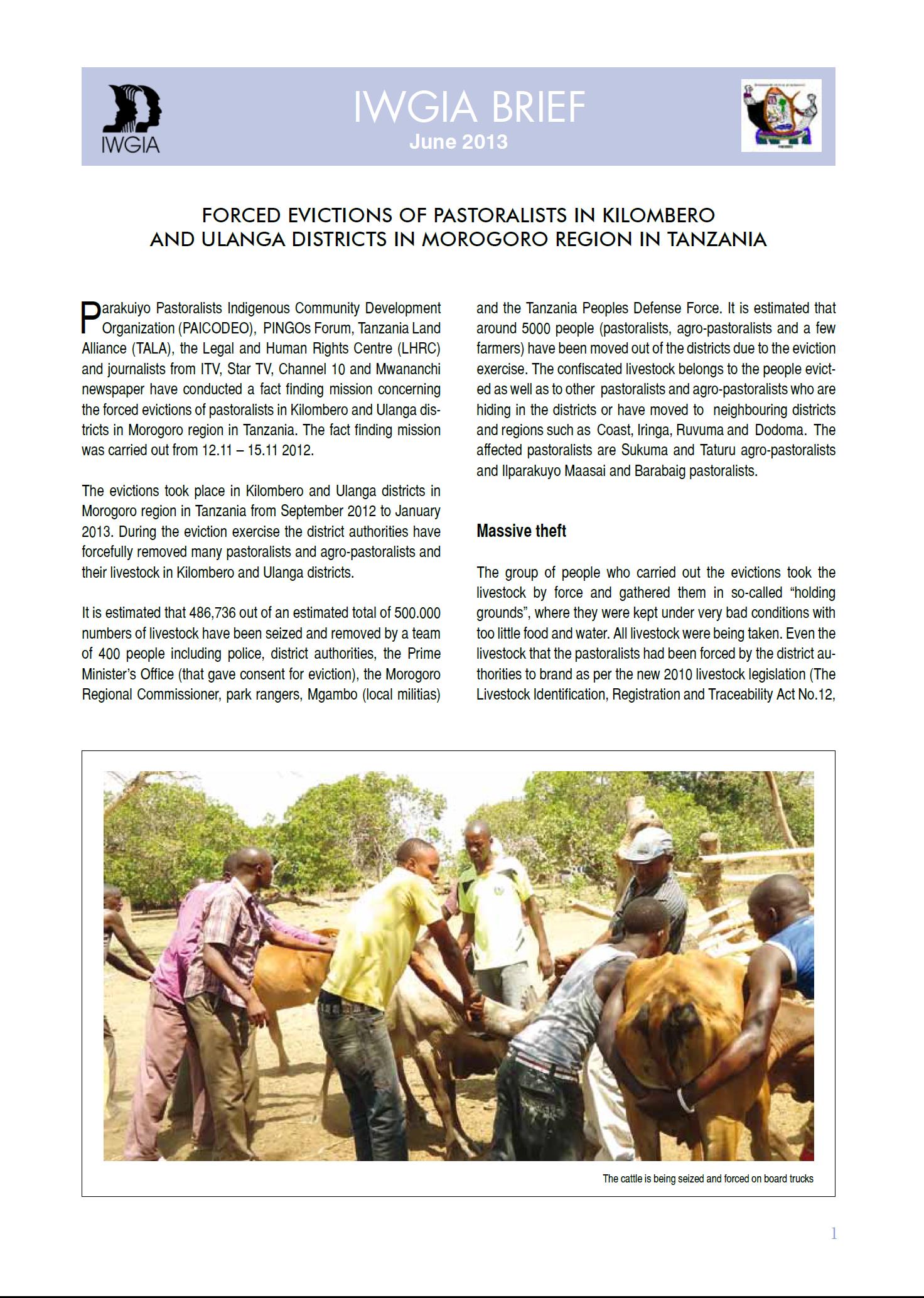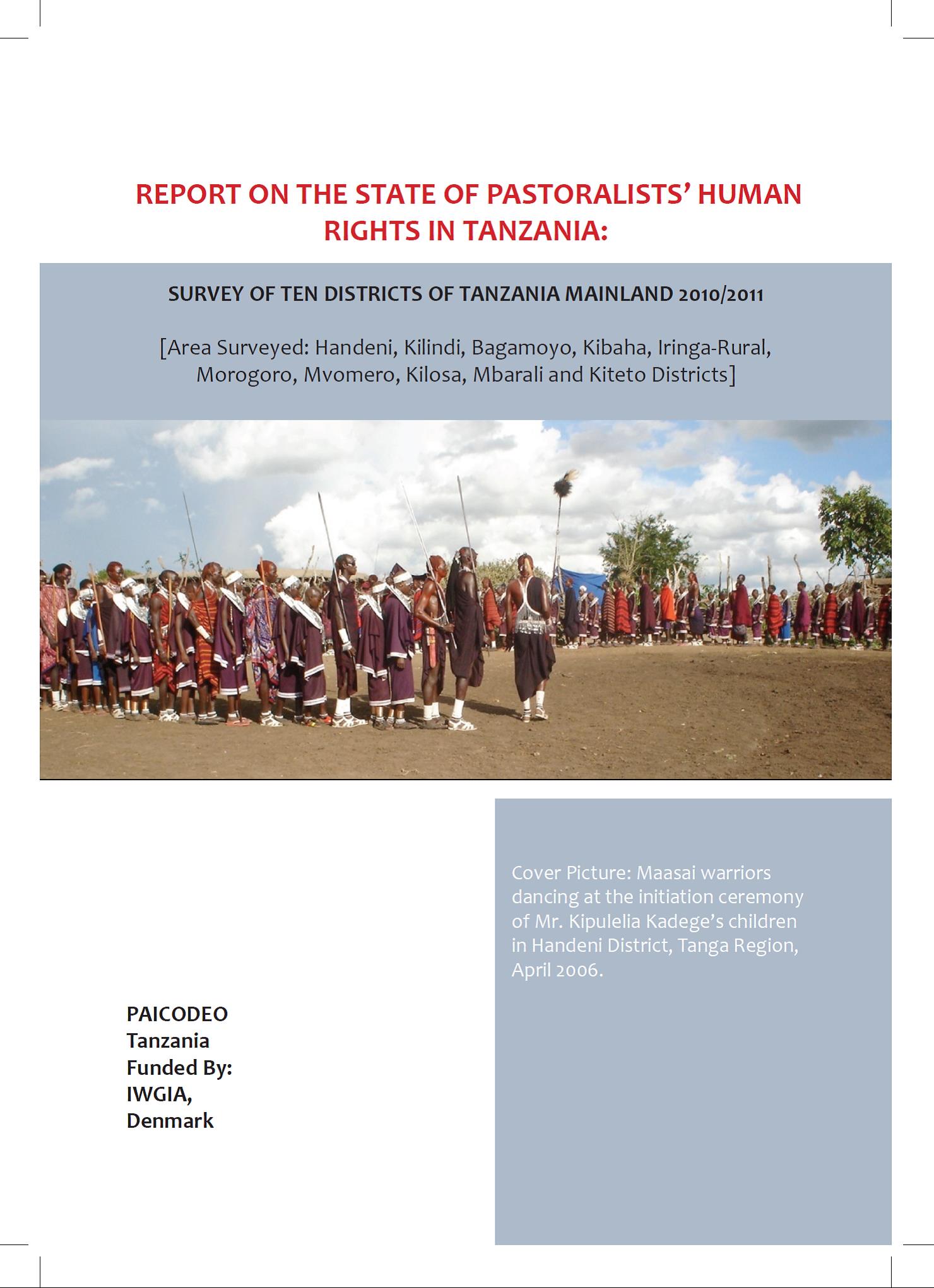Women’s Rights and Leadership Forums
In northern Tanzania, new grassroots groups called Women’s Rights and Leadership Forums (WRLFs) are mobilizing women and men in pastoralist communities to promote and defend local land rights. This briefing highlights some of the WRLFs’ achievements and strategies; asks how these forums, which appear to be a part of an emerging grassroots social movement for land rights, can be further supported; and explores whether such forums could be replicated elsewhere in the region

